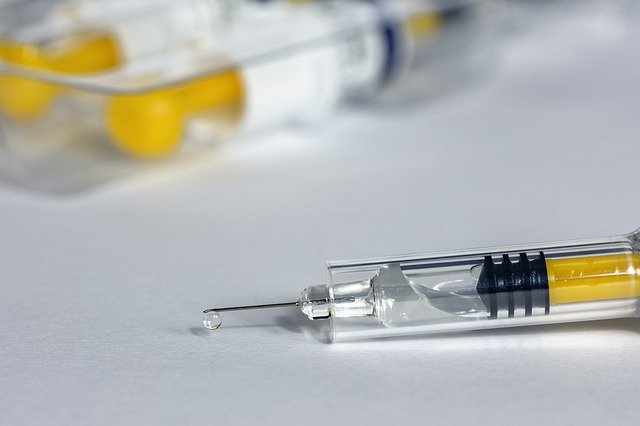Recent studies show encouraging results of the use of eculizumab in treating myasthenia gravis.
Published in the August 2020 issue of the Annals of Clinical and Translational Neurology, the study titled Consistent improvement with eculizumab across muscle groups in myasthenia gravis presented the results of the REGAIN trial that examined the efficacy of eculizumab in treating patients with refractory anti‐acetylcholine receptor antibody‐positive generalized myasthenia gravis [1].
The other study titled Eculizumab as a promising treatment in thymoma-associated myasthenia gravis, on the other hand, presented the case of a patient who was treated with eculizumab [2].
Trial of eculizumab in treating myasthenia gravis
The REGAIN Trial involved 125 patients with refractory anti‐acetylcholine receptor antibody‐positive generalized myasthenia gravis (AChR+ gMG). Fifty-six of the participants received eculizumab while the remaining 61 received placebo.
Those who received eculizumab showed muscle improvements across the four domain scores of both the patient-reported MG activities of daily living profile (MG-ADL) and the physician-reported quantitative MG scale (QMG).
After the initial trial, 117 of the patients participated in the 130-week open-label extension (OLE) where continued improvements among the patients were observed.
Myasthenia gravis patient treated with eculizumab
The case report, on the other hand, involves a 25-year-old woman who had been experiencing difficulty swallowing, binocular diplopia (double vision), proximal arm muscle weakness, and nasal voice for two months. Initial treatments included pyridostigmine, oral prednisone, intravenous immunoglobulins, and plasma exchange. However, due to possible thymoma and continuous symptoms, she was referred to the myasthenia gravis clinic of the Bellvitge University Hospital in Spain.
At the university hospital, the patient underwent thymectomy but, unfortunately, the symptoms worsened after the procedure. The patient then received tacrolimus for six months, rituximab for three months, cyclophosphamide for six months, and then azathioprine.
After a second thymectomy failed to improve the patient’s condition, she was given eculizumab. Symptoms improvements were then observed after eight weeks.
The authors noted that “this is an early case report of thymoma-associated refractory myasthenia gravis successfully treated with eculizumab in a real-world setting.”
Myasthenia gravis is a rare autoimmune disease characterized by skeletal muscle weakness which usually worsens after performing certain activities. Among the muscles usually affected are those of the eyes, face, throat, and limbs. Early symptoms may include double vision, eyelid drooping and difficulty speaking and swallowing.
NOTES:
[1] Mantegazza, R. O’Brien, F., Yountz, M. and Howard, Jr. J. (August 2020). Consistent improvement with eculizumab across muscle groups in myasthenia gravis. Annals of Clinical and Translational Neurology. Vol 7, Issue 8. https://onlinelibrary.wiley.com/doi/10.1002/acn3.51121
[2] Vélez-Santamaría, V., Nedkova, V., Díez, L., Homedes, C., Alberti, M. A., Casasnovas, C. (July 2020). Eculizumab as a promising treatment in thymoma-associated myasthenia gravis. Therapeutic Advances in Neurological Disorders journal Vol 13 https://journals.sagepub.com/doi/full/10.1177/1756286420932035
—–Ben’s Friends is a network of safe and supportive online communities for individuals affected by a rare disease or chronic condition. Our Living with Myasthenia Gravis Community aims to provide online support to people affected by IDP. If you think you would benefit from our community, we invite you to sign up here.
